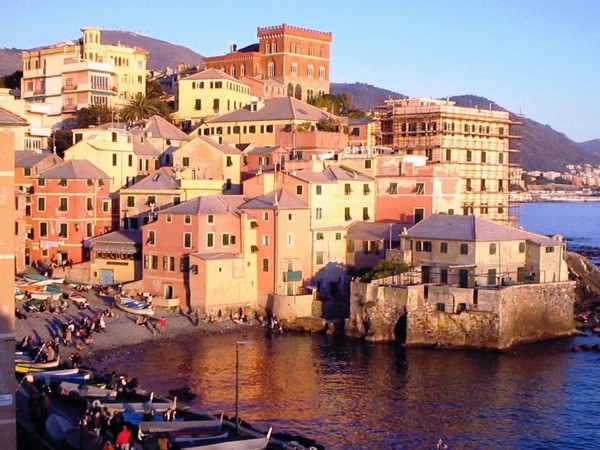
During my summer break I have been able to visit several European cities. Of all of them, as I did not know it, I will stop in Genoa, a beautiful Italian city, whose historic centre is extraordinarily beautiful.
First of all, for its buildings, both civil – the University – and religious – the Cathedral of San Lorenzo, among others. But also because it has managed to maintain its winding streets, its impossible staircases, its narrow alleys, reminiscent of medieval layouts where the designers of modern urban architecture had not yet introduced their exactness and straight lines.
The colour of its buildings, typical of the Italian Renaissance and Gothic periods, the grandeur of its palaces, make Genoa an essential stop. Its civil buildings, adorned on the corners with precious images of the Virgin Mary, Mother of God, consolation of the afflicted, help of Christians, refuge of sinners and fishermen; so essential in a city, which was a Republic, and which overlooks the Mare Nostrum.
The city spreads over several hills, at a very steep elevation, which requires both physical and spiritual effort to visit and get to know it. The whole city overlooks the sea that made it great and that still today is a vocation for the exchange of experiences, trade and the prosperity of its people.
But along with this past beauty and splendour, Genoa also offers a view of the post-modern world, which leaves you with a taste of unease and despair. Hundreds of young Africans crowd tourists and travellers, waiting for their belongings to be left unattended; and local commerce is clearly degraded. You don’t walk around with a sense of security. And in this it is the same as other cities, so European and Marian, such as Barcelona, Marseilles or Antwerp.
The walls, even of palaces and historic civic buildings, are full of graffiti against Israel and in favour of the terrorist cause of Hamas and Hezbollah – always under the guise of the Palestinian people -, along with others in favour of the squatters’ movement. The public political discourse is clearly anti-European and pro-Islamist. The public political discourse destroys the urban furniture and contrasts with the perfection, the order, the harmony of the Christian civilisation that illuminates the city.
Genoa is a good metaphor for this Europe that the political, cultural and economic elites have destroyed. The Christian heritage – which is also the university, the palaces of the ancient nobility and the thriving bourgeoisie that made Genoa a thriving and desired republic – is confronted with the barbarism of dirt, urban graffiti, insecurity and poverty exhibited in the form of people begging in the street.
The dissolution of the Christian order has always been the goal of the most radical theses of French revolutionary liberalism, of the revolutionary liberalism of the Garibaldi, of Spinelli’s Marxism, and of the prevailing Wokism. Its natural ally, the radical Islamism that is already on the streets of Western Europe. On the contrary, the conservative defence of the European, and therefore Christian, order must involve confronting at all levels those who promote, foster and finance disorder, poverty, insecurity and filth.
Genoa, like so many other European cities, cannot enter into a definitive process of destruction. The beauty of its green domes, the layout of its streets, the height of its crosses, deserves all our efforts. Because in this beauty lies the good and the truth. In this beauty lies justice, the individual and collective freedoms of the European nations, our freedom of expression, of religion and of thought. In its streets is the memory of our ancestors, the heroism of the martyrs of our nations.
Genoa, immortal, must be able to remain so, and therefore the public political discourse cannot be that of graphic violence, youth gangs in the streets and the promotion of Islamic fundamentalism.



 Subscribe
Subscribe